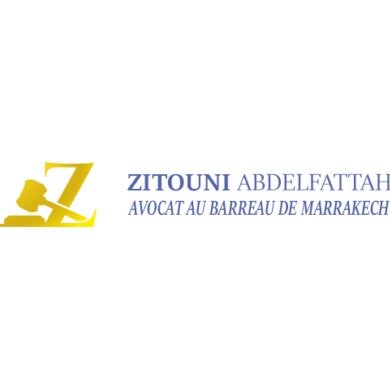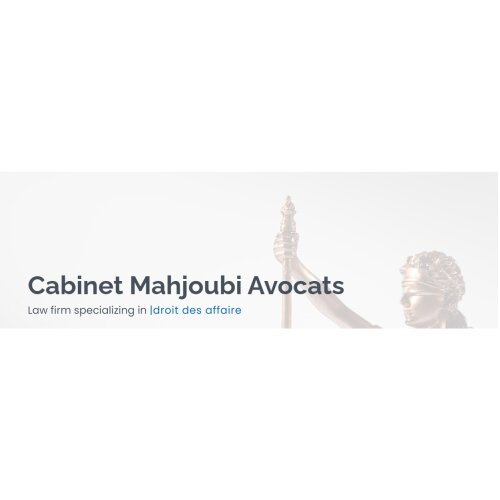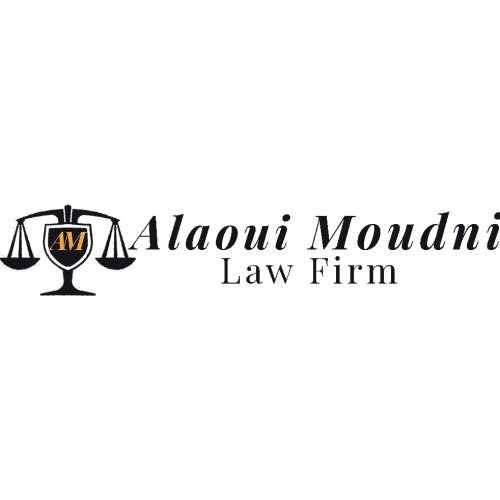Best International Trade Law Lawyers in Morocco
Share your needs with us, get contacted by law firms.
Free. Takes 2 min.
Or refine your search by selecting a city:
List of the best lawyers in Morocco
About International Trade Law in Morocco
International Trade Law in Morocco governs the exchange of goods and services across its borders. It encompasses a range of legal statutes, regulations, and agreements that Morocco adheres to, both on a national and international level. Morocco, being a member of the World Trade Organization (WTO), aligns its trade policies with global standards while also adhering to regional agreements like the Agadir Agreement aimed at promoting trade between Arab Mediterranean countries. The country's strategic position and diverse economy make it an active participant in global trade, thus emphasizing the importance of a robust legal framework for international trade.
Why You May Need a Lawyer
Engaging in international trade involves complex legalities and might require expert legal advice in various scenarios, such as:
- Navigating import and export restrictions specific to Morocco.
- Understanding compliance requirements with local and international trade agreements.
- Resolving disputes relating to international trade agreements.
- Negotiating trade contracts with foreign entities.
- Protecting intellectual property rights in international transactions.
- Mediating trade remedy proceedings like anti-dumping and subsidies.
- Ensuring adherence to consumer protection laws in foreign trade.
Legal guidance can help prevent costly mistakes and provide peace of mind in navigating international commerce complexities.
Local Laws Overview
Key aspects of local laws relevant to International Trade Law in Morocco include:
- Customs Law: Regulates duties, taxes, and procedures for goods entering or leaving Morocco, requiring compliance with both national and international customs regulations.
- Trade Agreements: Morocco is part of multiple bilateral and multilateral agreements that influence its trade policies, including the EU-Morocco Association Agreement and the US-Morocco Free Trade Agreement.
- Investment Law: Laws aimed at improving business climate to attract foreign direct investment, offering various incentives and protection assurances.
- Intellectual Property Laws: Protection mechanisms for patents, trademarks, and copyrights under Moroccan law aligning with international standards.
- Consumer Protection: Laws ensuring the quality and safety of products traded, which is vital for those dealing with international goods.
Frequently Asked Questions
What is the role of the World Trade Organization (WTO) in Morocco's trade law?
The WTO provides a framework for international trade negotiations and dispute resolution. Morocco's membership influences its trade regulations to comply with global standards.
Do I need a license to import/export in Morocco?
Yes, some goods require specific licenses or permits based on Moroccan regulations. Consulting with a legal expert can help identify necessary documentation.
What taxes apply to international trade in Morocco?
Duties, VAT, and other levies can apply. Customs law details various taxes and exemptions applicable to different goods.
How can I resolve a dispute with a foreign trade partner?
Disputes can often be resolved through arbitration or mediation. Moroccan law supports such mechanisms and may require legal representation to navigate.
What import restrictions exist in Morocco?
There might be restrictions based on safety, health standards, and environmental concerns. Legal advice can clarify applicable restrictions for specific products.
How do trade agreements impact my business?
Trade agreements can affect tariffs, market access, and investment opportunities. Understanding these can help in strategic business planning.
Are there specific laws for e-commerce in international trade?
E-commerce laws impact electronic transactions and digital goods. Legal understanding ensures compliance with local and international regulations.
How is intellectual property protected in international trade?
Moroccan law provides frameworks under which businesses can protect their IP. Knowledge of these laws helps in safeguarding assets in overseas markets.
What should be included in international trade contracts?
Contracts should address payment terms, delivery conditions, dispute resolution mechanisms, and legal jurisdictions to be comprehensive and legally binding.
Can anti-dumping laws affect my business?
Yes, these laws can affect product pricing and competition. Legal counsel can provide guidance on navigating these regulations effectively.
Additional Resources
Consider exploring the following resources for further guidance:
- Ministry of Industry, Trade, and Green and Digital Economy: Offers insights into regulations and policies affecting trade.
- Customs and Excise Administration: Provides information on customs procedures and tariff regulations.
- Moroccan Investment and Export Development Agency (AMDIE): Assists with trade facilitation and investment across borders.
- Lawyer's Bar Association in Morocco: Lists qualified lawyers specializing in international trade law.
Next Steps
If you require legal assistance in International Trade Law in Morocco, consider taking the following steps:
- Identify your specific need related to international trade, such as contract negotiation or dispute resolution.
- Research and contact a lawyer who specializes in international trade law for a preliminary consultation.
- Gather relevant documents and information to provide a comprehensive overview of your legal needs.
- Discuss potential strategies and outcomes with your legal advisor to make informed decisions.
Engaging specialized legal services ensures compliance and strategic advantage in navigating international trade.
Lawzana helps you find the best lawyers and law firms in Morocco through a curated and pre-screened list of qualified legal professionals. Our platform offers rankings and detailed profiles of attorneys and law firms, allowing you to compare based on practice areas, including International Trade Law, experience, and client feedback.
Each profile includes a description of the firm's areas of practice, client reviews, team members and partners, year of establishment, spoken languages, office locations, contact information, social media presence, and any published articles or resources. Most firms on our platform speak English and are experienced in both local and international legal matters.
Get a quote from top-rated law firms in Morocco — quickly, securely, and without unnecessary hassle.
Disclaimer:
The information provided on this page is for general informational purposes only and does not constitute legal advice. While we strive to ensure the accuracy and relevance of the content, legal information may change over time, and interpretations of the law can vary. You should always consult with a qualified legal professional for advice specific to your situation.
We disclaim all liability for actions taken or not taken based on the content of this page. If you believe any information is incorrect or outdated, please contact us, and we will review and update it where appropriate.
Browse international trade law law firms by city in Morocco
Refine your search by selecting a city.

















